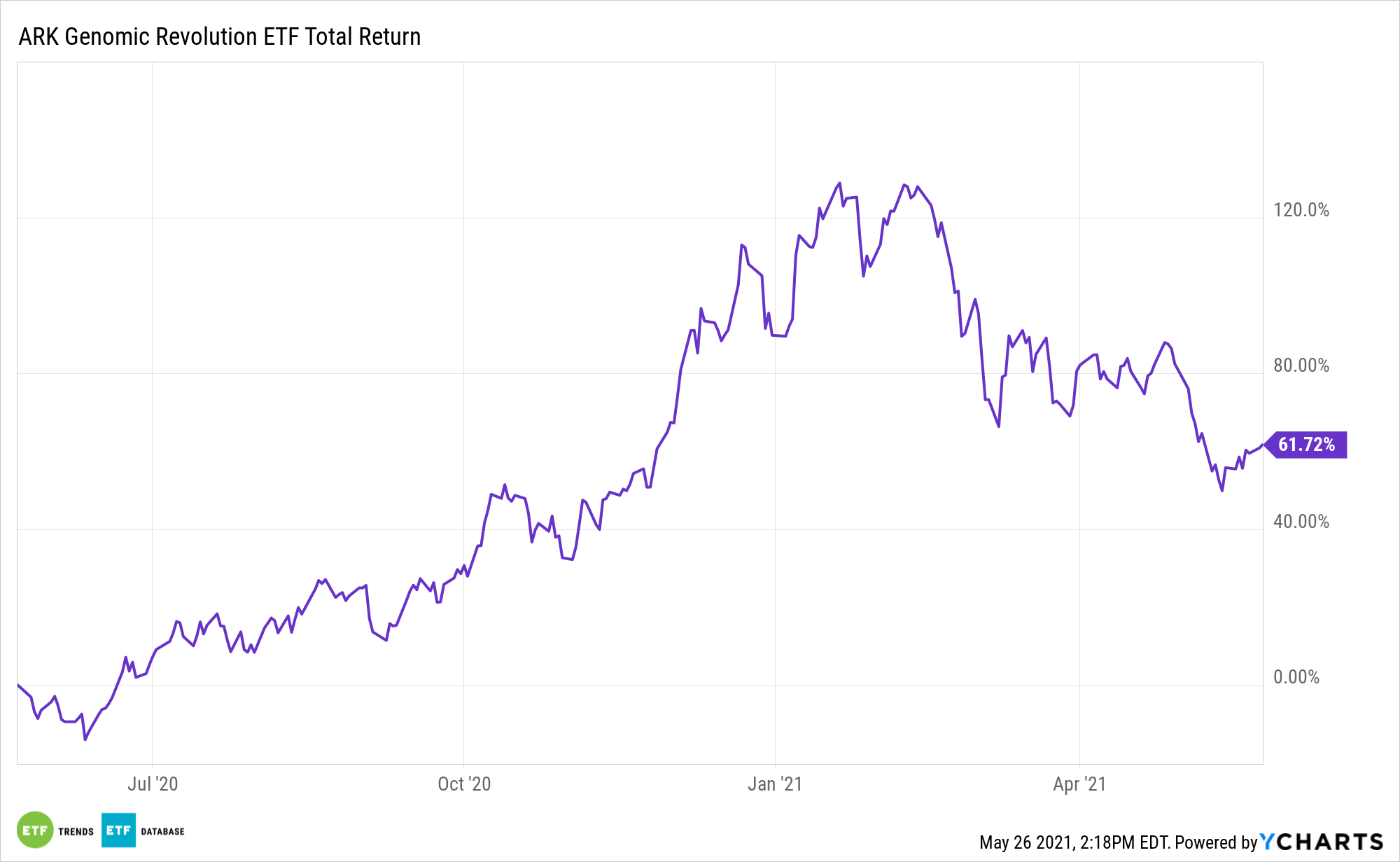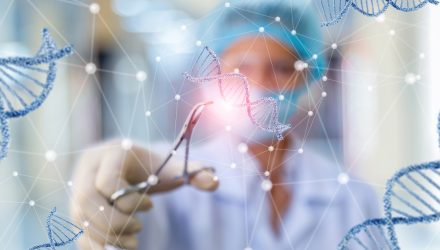For growth investors seeking disruptive exposure in the healthcare sector, genomics is often a favored destination. The industry pushes an array of advances that can improve diagnoses, disease screening and treatment, and patient outcomes.
One frontier for investors to stay abreast of is base editing – the concept of shifting one DNA pair to another. Companies developing base editing technologies are accessible via the ARK Genomic Revolution Multi-Sector Fund (CBOE: ARKG).
“Base editors directly convert one base or base pair into another, enabling the efficient installation of point mutations in non-dividing cells without generating excess undesired editing byproducts,” according to a 2018 study from the National Institutes of Health (NIH).

Banking on Base Editing with ‘ARKG’
A primary benefit offered by the $9.44 billion ARKG is that the fund is actively managed, meaning it can more nimbly allocate to emerging genomics trends, including base editing. Passive rivals often lack the ability to add to these positions.
In fact, ARKG’s active benefits have recently been on display.
“This year at the J.P. Morgan Healthcare Conference, Verve Therapeutics, a private cardiovascular gene editing company, presented interesting pre-clinical data on its use of Beam Therapeutics’ base editing technology,” writes ARK analyst Ali Urman. “In healthy non-human primates, Verve’s scientists discovered that inactivating the PCSK9 gene lowered the level of low-density lipoprotein (LDL), or bad cholesterol, reducing the probability of heart attacks.”
Beam Therapeutics (NASDAQ: BEAM) accounts for 1.57% of ARKG’s weight as of May 25, according to issuer data.
As Urman notes, recent data published by Verve indicates a single treatment of in vivo base editing used in a specific gene in non-human primates reduced LDL by 60% over an eight-month span with scant side effects.
“This updated data suggests that base editing could correct other ‘misspellings’, or point mutations, in base pairs of DNA, potentially addressing large unmet needs and curing a wide range of diseases,” adds the ARK analyst.
Base editing and many of the other concepts addressed in ARKG are complex, high-level endeavors that scientists and healthcare professionals digest on a daily basis. The ARK fund has outperformed the S&P 500 Health Care Index by a more than 3-to-1 margin over the past three years.
For more on disruptive technologies, visit our Disruptive Technology Channel.
The opinions and forecasts expressed herein are solely those of Tom Lydon, and may not actually come to pass. Information on this site should not be used or construed as an offer to sell, a solicitation of an offer to buy, or a recommendation for any product.

